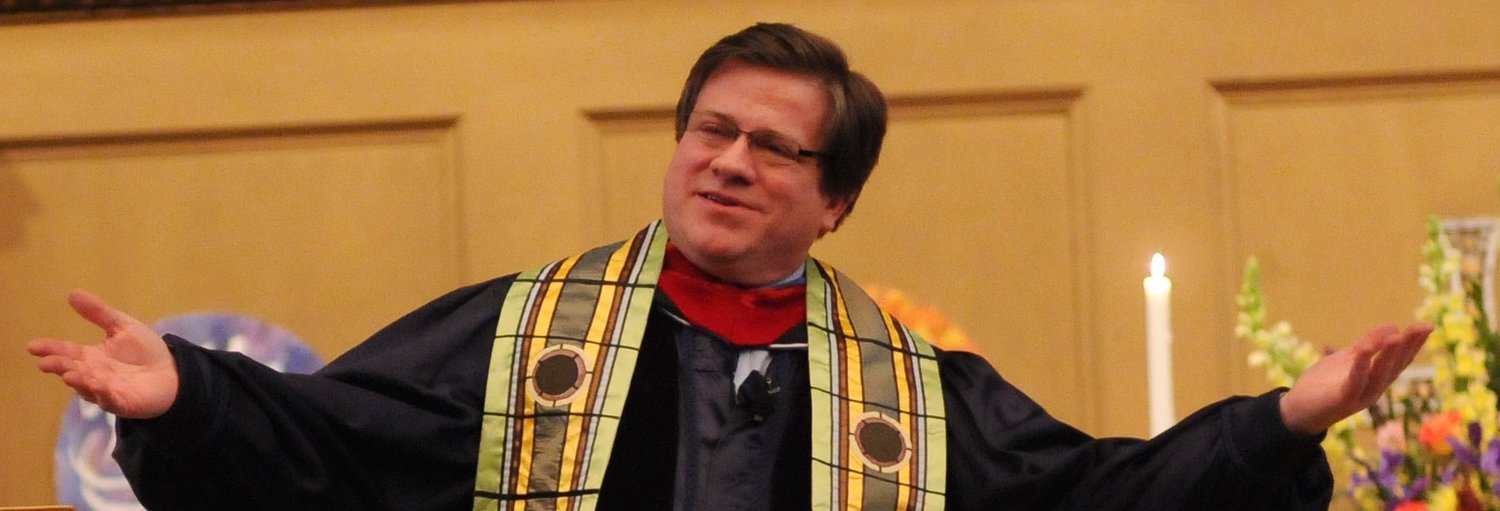For the Inward Journey, Day Five
God Is . . . (part one)
Not only is faith a way of knowing, a form of knowledge, but it is also one of life’s great teachers. At no point is this fact more clearly demonstrated than in an individual’s growing knowledge of God. It is obvious that, in the last analysis, proof of the existence of God is quite impossible. A simple reason for this is the fact that, if there is that to which God may be finally reduced, then He is not ultimate. But let us not be led astray by this apparent abstraction. Faith teaches a man that God is.
The human spirit has two fundamental demands that must be met relative to God. First, he must be vast, limitless, transcendent, all-comprehensive, so that there is no thing that is outside the wide reaches of His apprehension. The stars in the universe, the great galaxies of spatial groupings moving in endless rhythmic waters in the trackless skies, as well as the tiny blade of grass by the roadside, are all within his grasp. The second demand is that He be personal and intimate. A man must have a sense of being cared for, of not being alone and stranded in the universe. All of us want the assurance of not being deserted by life nor deserted in life. Faith teaches us that God is—that He is the fact of life from which all other things take their meaning and reality. When Jesus prayed, he was conscious that, in his prayer, he met the Presence, and this consciousness was far more important and significant than the answering of his prayer. It is for this reason primarily that God was for Jesus the answer to all the issues and the problems of life. When I, with all my mind and heart, truly seek God and give myself in prayer, I, too, meet his Presence, and then I know for myself that Jesus was right.
(For the Inward Journey: the writings of Howard Thurman.
Selected by Anne Spencer Thurman. pages 116-117
originally published in Deep is the Hunger)
Today and for the next few days, I consider the essay “Gad is . . .” This bears a few challenges.
The first has to do with the language that Thurman uses that captures the universality of God and of humankind in terms that are gendered, and that the gender chosen is male. I imagined I might edit that language, and then decided instead to let it stand and to allow that, were Thurman writing today, I imagine he might have moved toward what we find more acceptable today. “Humanity, the human” etc. would be a clearer choice than “man.” Hmm, I wonder what God’s pronouns are?
But as for the existence of God at all, what shall I say? When I identify myself as a humanist, I’m often challenged about whether I believe there is a God. I reply something like “Of course I believe in Poetry!” For me, God becomes real as God is the metaphor for the process of the Universe which is leading onward toward greater diversity and simultaneously greater integration among all things. “The world is too much with us” (Wordsworth) in the challenges with which we are faced. Not alone among these are the ways human activity is changing the planet itself and all the futures of all the inhabitants of this planet. As well we observe with some horror the rush toward authoritarianism which is breaking out all over, especially as White people fear the disappearance of the rules by which northern Europeans and (some) Americans have been calling the shots on this precious globe. There are so many more challenges; and the solutions to these challenges are increasingly available to large numbers of this human family to address, to turn the course of history, to find ways that bring the whole species together and to act for the benefit of the whole system.
This dance is part of what Thurman posits: that God must be both limitless and personal, transcendent and imminent. It is faith that allows someone—that allows me!—to be satisfied heart and mind that such considerations of my own access to God and apprehension of God are not symptoms of my mental illness but rather my mental health. Faith may satisfy the ways I read the poem that is God.
I’m remembering that Thurman called his autobiography With Head and Heart. Yes! Faith lets my thinking person and my feeling person come together to live a life that hopes to put an end to the divisions of the human species and to work toward our fullness. And faith in a God who is the greatest of all things helps me accept a little humility. I’m not God, thank God; and my life, connected to all other lives in the systemic patterns which are still evolving (and which still contain all kinds of oppression), can both be good in itself and in process toward something more integrated, more satisfying, closer to a great truth.
There goes the alarm! Time to set this post free. Time to prepare to go into the world and meet you. Blessed be, friends!
